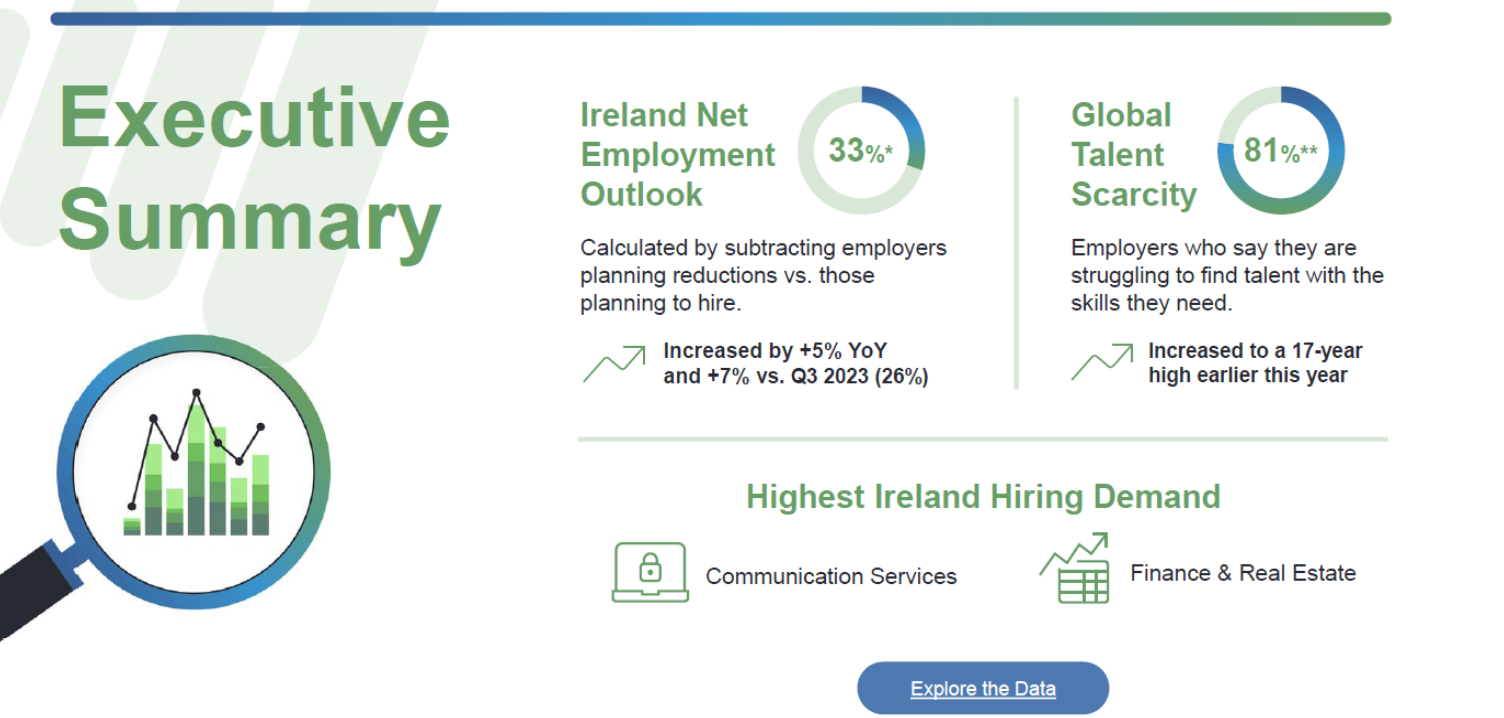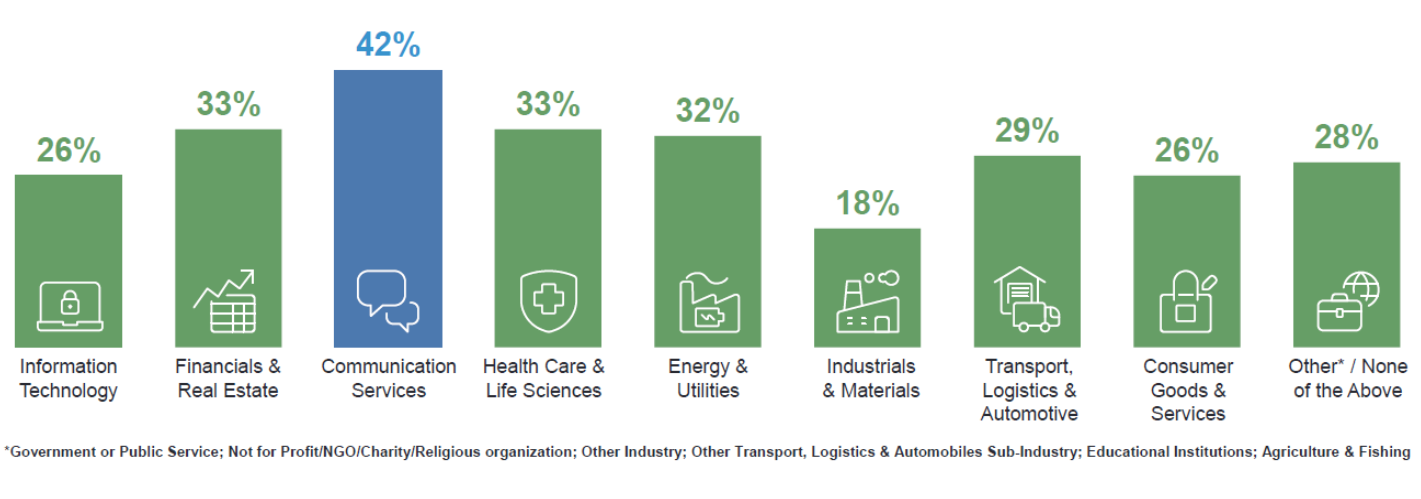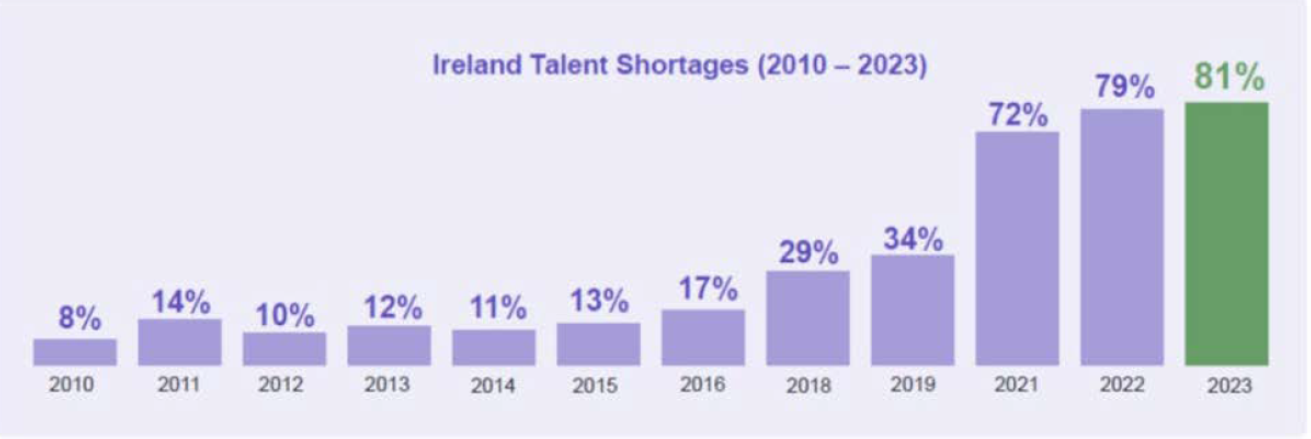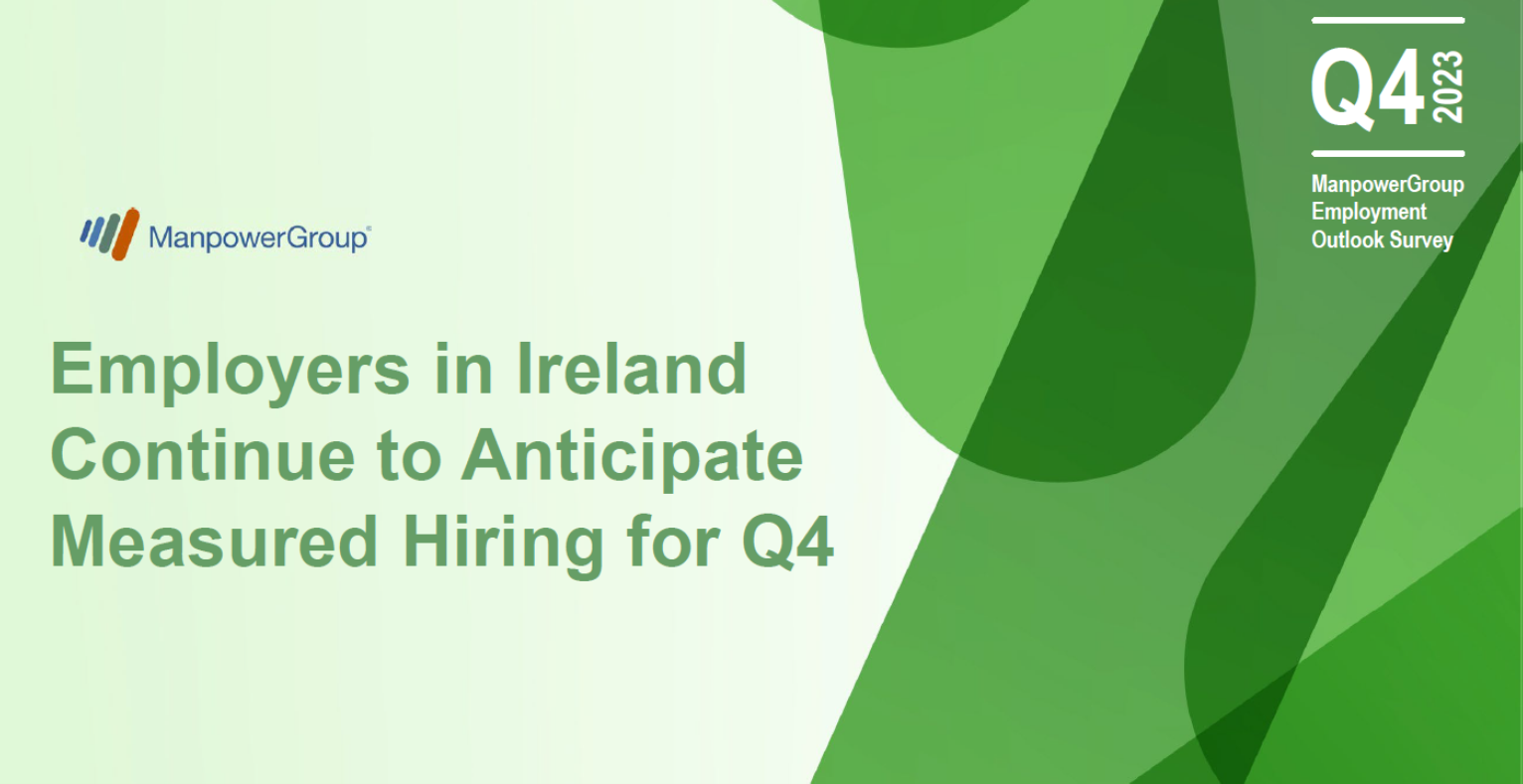Demand for Digital & IT Jobs Spike Defying A.I. Job Loss Fears.
Irish Net Employment Outlook rises to +33% in the fourth quarter.
43% employers report human skill of collaboration most important when hiring.
IT Sector hiring demand climbs 20% since last quarter.

Demand for IT and digital roles surge, despite fears of A.I. replacing jobs in the tech space, according to the Latest ManpowerGroup Employment Outlook Q4 2023 Survey. In the fourth quarter of 2023, the National Hiring Outlook is +33%, an increase of seven percentage-points on last quarter and five percentage-points on Q4 2022. This points to a strong finish to 2023 as employers make staffing plans for growth into 2024.

In data released today, 43% of Irish employers report outside of technical skills, communication, collaboration, and teamwork are the most important skills for candidates. This was followed by reasoning and problem-solving skills (27%) and active learning and curiosity (26%). “Far from employers seeking A.I solutions to replace human jobs, employers report that human skills of communication, collaboration and teamwork are most important when looking for candidates,” said John Galvin, Managing Director, ManpowerGroup Ireland.
“We know employers have increased their hiring budgets, and the data shows us employers are looking to hire individuals with human skills who can be trained in hard skills on the job, not just the digital natives we’ve seen in high demand of the past.”
The Communications Services sector reports the highest Net Employment Outlook, with +42% of employers planning to hire, down eight percentage-points on last quarter. Followed by Financials and Real Estate (+33%) and Healthcare and Life Sciences (+33%). The Information Technology sector reports the strongest increase in hiring plans since last quarter, with +26% of businesses planning to hire in the fourth quarter, up 20 percentage-points on last quarter and nine percentage-points since Q4 2022.
53% of employers in this sector report communication, collaboration & teamwork skills are the most important soft skills when hiring – a higher percentage than any other sector. This is against just 17% that said being a digital native was most important.
Below is the hiring sentiment by Sector in Ireland for Q4

“Despite layoffs in Big Tech, demand from employers across Ireland’s tech sector has increased more than any other. More than half of employers in the IT space report A.I. will have a net positive impact on job opportunities, versus just 9% that say it will have a negative impact – a far cry from suggestions programmers and developers will be replaced by machines any time soon. Digital roles are still very much in demand, and it’s the human skills only a person can bring that they’re looking for most of all. The problem employers continue to face is finding those candidates in the current labour market.” Explains Galvin. Munster is the most positive of the regions studied followed by Dublin for Q4 hiring confidence.

ManpowerGroup’s 2023 Talent Shortage Survey reports 79% of employers in the IT sector have difficulty sourcing the right candidates, and 50% of these employers are struggling to find candidates with IT and data skills – more than double the national average. However, new data published today finds 27% would hire a candidate that does not meet all their technical skill requirements. “If employers want to bridge their skills gaps, they have to be ready to meet candidates half way. Employers need to be ready to invest in upskilling and reskilling programmes to build the technical skills they need, alongside developing the in-demand human skills they have hired.” concludes Galvin.





